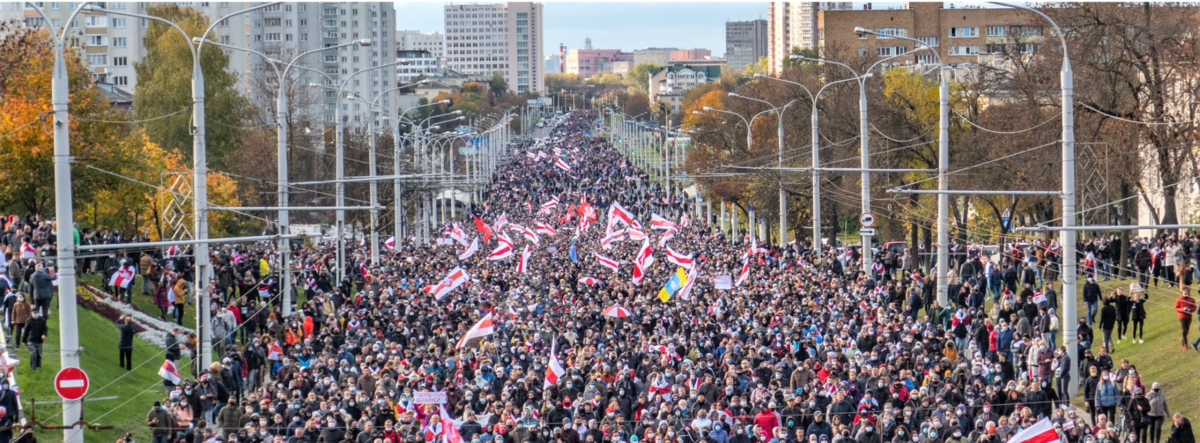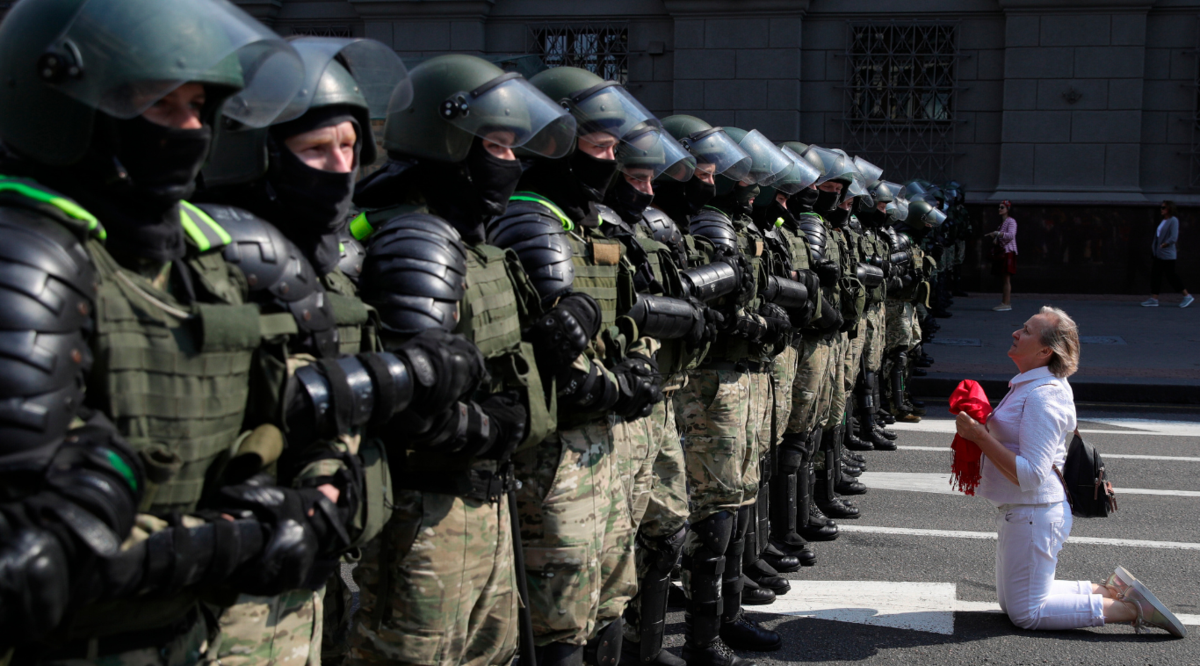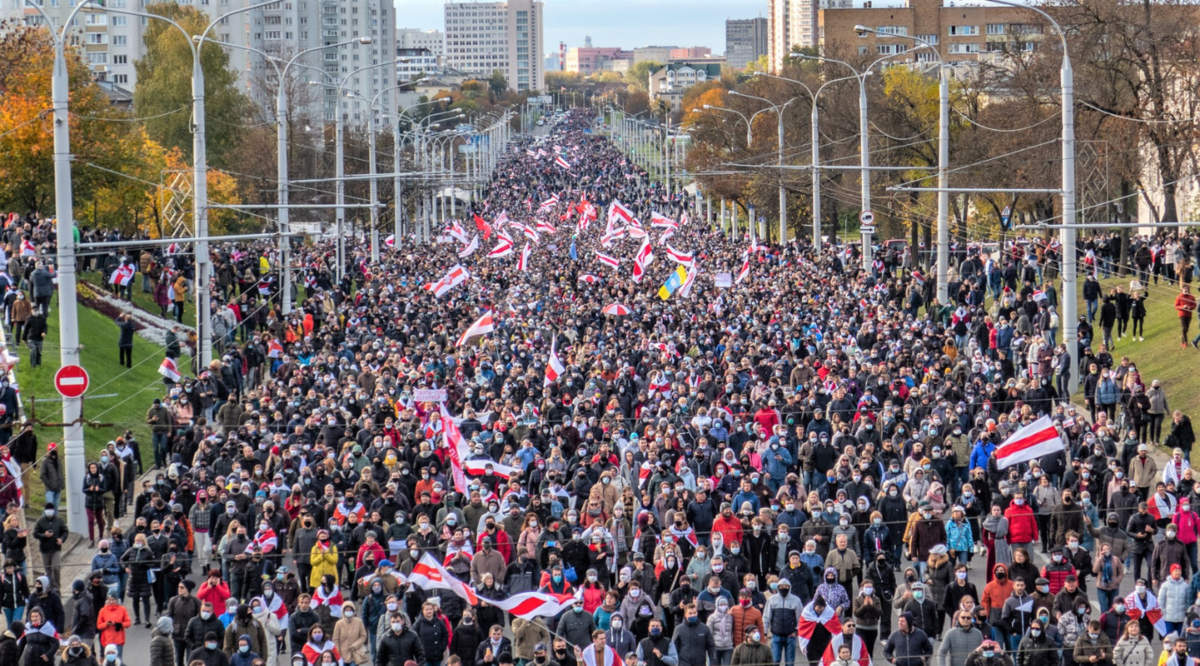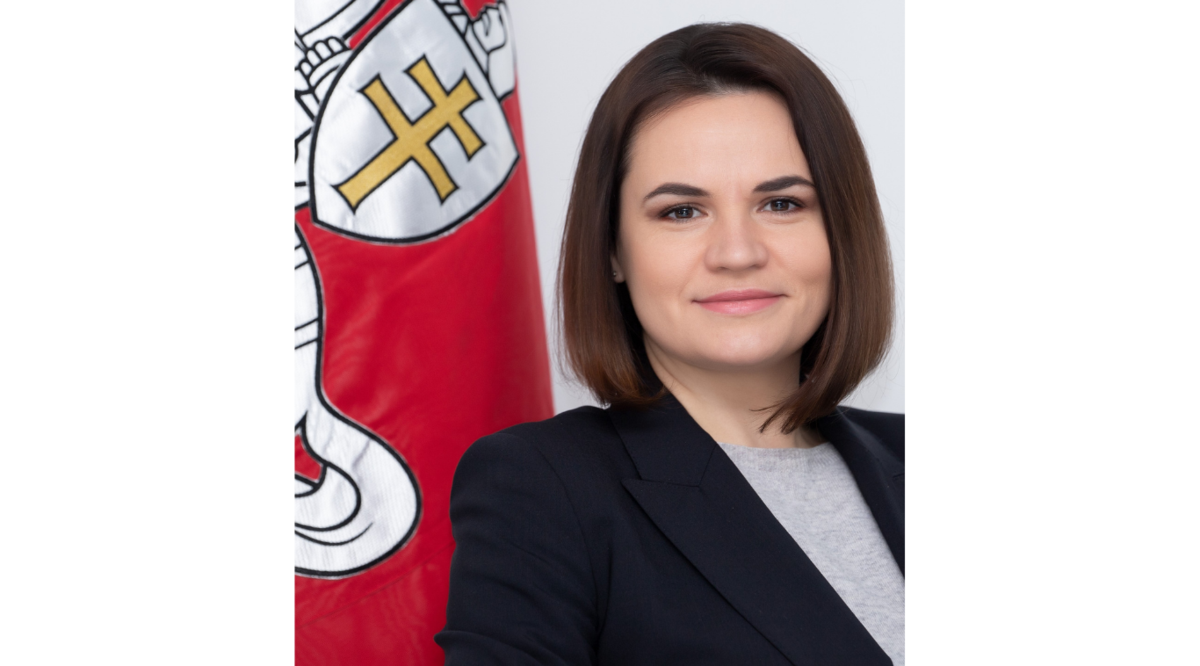During my business trips and state visits, I meet politicians and diplomats who often say to me: We admire your courage and support your cause, but unfortunately, there is not much that we can do. Without Russia's consent, democratic change in Belarus is impossible, they often say. We have exhausted all possibilities for action; we cannot stop the violence; we have our own problems to deal with. Again and again, I hear the same answers.
How can we break through this fatalism? How can we say a decisive no to our supposed powerlessness? Dare to look into the future? Write a new democratic narrative and pave the way into the 21st century?
The Lukashenka regime surrounded us with easy answers and lulled us into a familiar world - the world of the past. Feeling powerless, we did not believe we could change anything. What for? For whom? What would it bring? It is this apathy and powerlessness that the authoritarian regime has been able to rely on over the past decades.
Overcoming fear and apathy
But in the summer of 2020 something happened that seemed merely impossible before. Hundreds of thousands of Belarusians united to express their desire for change and to take the fate of their country into their own hands. In a historic act of civil courage, Belarusians overcame their fear and apathy. While the world was introducing the first lockdowns, an unprecedented protest movement emerged in Belarus – defying both the pandemic and authoritarianism. The pictures of the peaceful Belarusian protests went around the world.
The massive electoral fraud was followed by an unprecedented wave of repression that continues to this day. Since the presidential election on 9 August 2020 more than 37,000 people have been imprisoned. Thousands have been humiliated, tortured, and traumatized. Currently, there are more than 800 political prisoners, including presidential candidates Viktar Babaryka and Siarhei Tsikhanouski, my husband. Many face up to 20 years in prison. Every Belarusian now has a relative or friend in prison. Thousands of people have been forced to flee for safety. As of August 2021, Poland alone issued over 150,000 humanitarian visas to Belarusians in exile. The actual number is likely to be much higher.
The Lukashenka regime is acting out of revenge and fear. The political elite continues to cling to power, which is based solely on violence and repression. However, we resolutely reject any form of violence. The political situation has not yet changed, but our society has already changed. We want to determine our own future – a right that was denied to us for a long time. We remain in intensive contact with local Belarusian initiatives. Workers are preparing for a nationwide strike. Many Belarusians have joined our "Peramoha" (in English: Victory) plan to mobilize peaceful, non-violent resistance. We have developed a vision for a future democratic Belarus as well as announced the "New Belarus" campaign. This is already helping us to prepare concrete proposals for the necessary aid programs, national investment plans, as well as reforms. In addition, we are working to divide the political elites in Belarus by offering dialogue formats on the one hand and exerting political pressure on the other. Sanctions are an important tool in this regard. Our demands remain unchanged: Release of political prisoners and free and fair elections.
Belarus today is in the midst of a profound political crisis that costs lives every day. This includes migrants sent to Europe by the Belarusian regime. Nevertheless, we should not be blinded by illegal migration. We should not fight the battle against windmills, but tackle the problem at its root. The problem is the illegitimate power in Belarus that holds millions of people hostage and has become a threat to regional and global peace and security.
If Belarus is forgotten, if Belarus is disregarded, this crisis will become a threat to all democracies in the world. It is therefore the need of the hour to lead Belarus peacefully out of this political crisis and to bring the Belarusian political elites to the negotiating table with regional and international partners. Germany could play an important mediating role in this process.
For the future of democracy in Europe
What is often taken for granted in Germany and Europe, thousands of Belarusians have to fight for every day: freedom. This is not just about Belarus. It is about the future of democracy in Europe. We need a radical transition and more bold action for democracy.
Yet many politicians are often shackled by fear of unpopular political decisions, of missteps that could cost their careers. But we don't need fear, we need more courage. We need a vision for the future in Europe. We have no time to lose. Faced with the great challenges of our time such as climate change, the Covid-19 pandemic, rapidly growing inequalities, demographic change, or dwindling trust in politics and democratic institutions, we must act quickly and boldly.
Europe must once again become a magnet for other countries and free itself from fatalism and the belief in its own powerlessness. We must encourage and support people who want to work actively for change and take destiny into their own hands because democracy thrives on action.
Germany is not simply an economic power and a global exports leader; Germany is a constitutional state based on democratic values. Just as Europe is not simply a single market, but a continent united by fundamental rights and freedoms. We owe the next generation an inspiring narrative of future Europe and a thriving, innovative democracy. For the sake of Europe's future, we need to change this.





